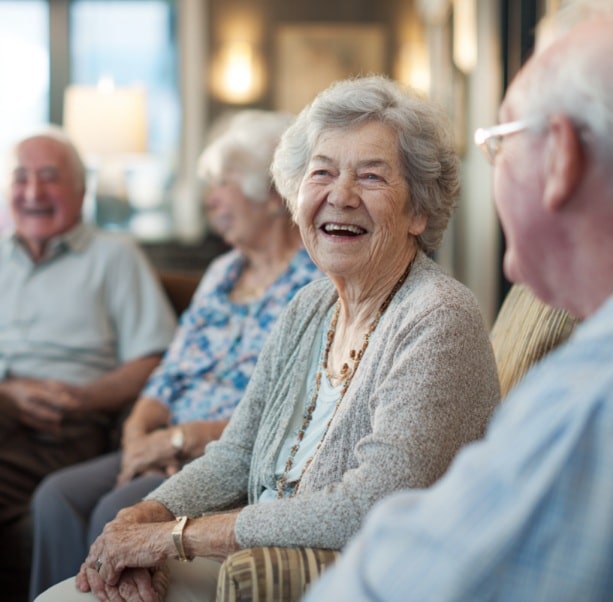How Seniors Can Protect Themselves from Food Related Illness

Every year, one in six Americans suffers food poisoning and about 3,000 die, according to the Centers for Disease Control and Prevention . While healthy diets are certainly beneficial and help prevent disease and improve mental and physical abilities, seniors should avoid some foods that appear healthy, especially raw foods, because of the germs that are in the food. As we age, it is harder for our bodies to fight off germs, making it easier to get sick. Having diabetes, kidney disease, or treatments from cancer also add to the risk of food-borne illnesses.
The Food and Drug Administration recommends seniors avoid these foods:
- Raw fish
- Raw shellfish, such as oysters, clams, mussels, and scallops
- Raw meat or poultry
- Raw or unpasteurized milk or cheese
- Soft cheeses such as feta, brie, blue, and Mexican-style
- Raw or lightly cooked eggs or egg products, such as salad dressings, cookie dough, cake batter, sauces, and drinks such as eggnog
- Raw sprouts
- Unpasteurized or untreated juice from fruits and veggies. In the U.S. almost all juice is treated to kill germs. This makes it safe to drink. The FDA requires a warning label on all juices that have not been treated. The label says: WARNING: This product has not been pasteurized and therefore may contain harmful bacteria that can cause serious illness in children, the elderly, and persons with a weak immune system.
The Centers for Disease Control and Prevention adds this:
- Do not eat hot dogs, luncheon meats, or deli meats, unless they are reheated until steaming hot.
- Avoid getting fluid from hot dog packages on other foods, utensils, and food preparation surfaces, and wash hands after handling hot dogs, luncheon meats, and deli meats.
- Do not eat refrigerated pâtés or meat spreads. Canned or shelf-stable pâtés and meat spreads may be eaten.
- Do not eat refrigerated smoked seafood, unless it is contained in a cooked dish, such as a casserole. Refrigerated smoked seafood, such as salmon, trout, whitefish, cod, tuna, or mackerel, is most often labeled as “nova-style,” “lox,” “kippered,” “smoked,” or “jerky.” The fish is found in the refrigerator section or sold at deli counters of grocery stores and delicatessens. Canned or shelf-stable smoked seafood may be eaten.
Why refrigerator maintenance is a priority
Reducing the risk that your body will be introduced to harmful germs also begins in your refrigerator. Listeriosis is an infection and a form of food poisoning caused by eating contaminated food with the bacterium Listeria monocytogenes which grows on food at refrigerator temperatures. People affected by listeriosis experience symptoms such as fever, muscle aches, and sometimes nausea or diarrhea. The infection can spread to the nervous system, causing headache, stiff neck, confusion, loss of balance, or convulsions. Obviously, at that stage, listeriosis puts seniors even more at risk for falling.
In the United States, an estimated 1,600 persons become seriously ill and 260 die with listeriosis each year. Even with prompt treatment of antibiotics, some infections result in death. This is particularly likely in the elderly and in persons with other serious medical problems.
The good news is consumers can reduce their risk for listeriosis quite easily in three easy steps as outlined by the Food and Drug Administration.
Chill…
…at the Right Temperature
- Your refrigerator should register at 40°F (4°C) or below and the freezer at 0°F (-18°C).
- Place a refrigerator thermometer in the refrigerator, and check the termperature periodically. Adjust the refrigerator temperature control, if necessary. Place a second thermometer in the freezer.
Use…
…Ready-to-Eat Foods ASAP!
- Use ready-to-eat, refrigerated foods as soon as possible. The longer they’re stored in the refrigerator, the more chance Listeria has to grow.
Clean…
…the Refrigerator
- Clean your refrigerator regularly.
- Wipe up spills immediately. This is particularly important, so Listeria doesn’t have a place to grow and then spread to other foods.
- Clean the inside walls and shelves with hot water and a mild liquid dishwashing detergent; then rise. Dry with a clean cloth or paper towel.
Other measures you can take to avoid listeriosis:
- Thoroughly cook raw food from animal sources, such as beef, pork, or poultry.
- Wash raw vegetables thoroughly before eating.
- Keep uncooked meats separate from other foods.
- Wash hands, knives, and cutting boards after handling uncooked foods.
- Consume perishable and ready-to-eat foods as soon as possible.
Given a senior’s naturally lowered ability to fight off infection, seniors, their families, and caregivers should take these preventive measures to avoid germs in food and contracting food poisoning. Pay attention to the foods that are eaten, how food is prepared, and properly maintain the food in the refrigerator, and you may avoid an illness that causes great discomfort and weakening of the body.
Reprinted by Always Best Care Senior Services with permission from the Society of Certified Senior Advisors.
The Certified Senior Advisor (CSA) program provides the advanced knowledge and practical tools to serve seniors at the highest level possible while providing recipients a powerful credential that increases their competitive advantage over other professionals. The CSA works closely with Always Best Care Senior Services to help ABC business owners understand how to build effective relationships with seniors based on a broad-based knowledge of the health, social and financial issues that are important to seniors, and the dynamics of how these factors work together in seniors’ lives. To be a Certified Senior Advisor (CSA) means one willingly accepts and vigilantly upholds the standards in the CSA Code of Professional Responsibility. These standards define the behavior that we owe to seniors, to ourselves, and to our fellow CSAs. The reputation built over the years by the hard work and high standards of CSAs flows to everyone who adds the designation to their name.
Always Best Care Senior Services
Always Best Care Senior Services (Always Best Care) is based on the belief that having the right people for the right level of care means peace of mind for the client and family. Always Best Care Senior Services has assisted over 25,000 seniors, representing a wide range of illnesses and personal needs. This has established the company as one of the premier providers of in-home care, assisted living placement assistance, and skilled home health care.
To print this article CLICK HERE





